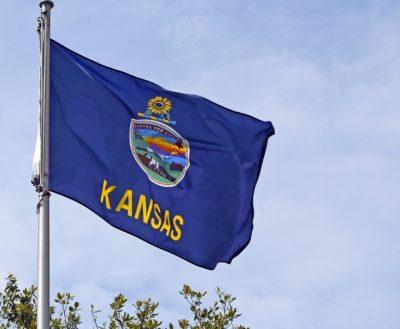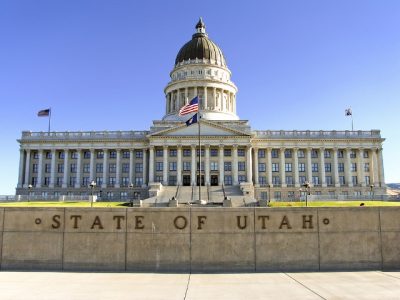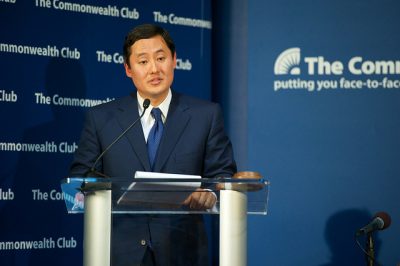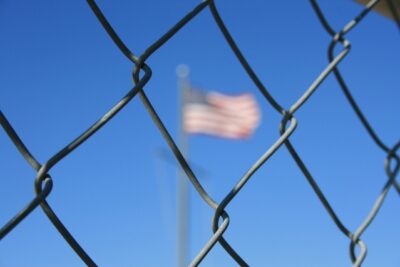Border Enforcement
Migration at the border is a multifaceted issue, challenging the U.S. to secure our borders while upholding the human rights of individuals seeking safety and better opportunities. Balancing national security with compassion and our legal obligations to asylum seekers presents intricate dilemmas, and we collaborate with policymakers to advance bipartisan, action-oriented solutions.
Beyond A Border Solution
- Asylum
- May 3, 2023
America needs durable solutions. These concrete measures can bring orderliness to our border and modernize our overwhelmed asylum system. Read…
Read More
Kansans Push for Kobach Recall
Activists in Kansas are mounting a campaign to recall the state’s Secretary of State and notorious immigration restrictionist Kris Kobach. According to the Associated Press, there is a movement to collect signatures to recall him. For months, several groups have held rallies and press conferences, accusing Kobach of spending too much time working on his extracurricular activities – including promoting the anti-immigrant laws he authored in other states and attending immigration-related meetings – instead of serving the people of Kansas. Read More

Supreme Court Case Highlights Cruel Intersection of Immigration and Drug Laws
Tomorrow morning, the Supreme Court will hear arguments in a complicated immigration case involving how courts should determine whether a crime qualifies as an “aggravated felony.” Once the legal clutter is set aside, however, the case provides a clear example of how our nation’s immigration laws often fail to account for the most basic considerations of fairness and proportionality. If the Justices rule in the government’s favor, a lawful permanent resident with two U.S. citizen children could be deported from the country—and permanently barred from returning—for possessing less than $30 worth of marijuana. Read More

Got Clarity? “Illegal Immigrant” Is More than Just a Term
Over the last few weeks, New York Times Public Editor Margaret Sullivan has been weighing a challenge from fellow journalist and self-described “undocumented immigrant” Jose Antonio Vargas—drop the use of “illegal immigrant” as the Times default description of the 12 million undocumented people in the United States. Sullivan invited and received public comment on the challenge, much of which made subtle and nuanced pleas to use terms that were less insulting and more accurate. This week, calling her decision somewhat anti-climactic, Sullivan recommended that the Times stick with its current style guide because illegal immigrant is a term that is “brief, descriptive, and “gets its job done in two words that are easily understood.” Read More

Utah Attorney General Pushes Sensible Immigration Policies
Republican Utah Attorney General Mark Shurtleff has become a poignant and effective advocate for smart immigration policies, including the DREAM Act. On Monday, Shurtleff spoke at the Immigration Law and Policy Conference, in Washington D.C., where he concluded that the “biggest casualty in the immigration debate is the truth.” Shurtleff understands prosecutorial discretion, and is firmly behind the Obama Administration’s recent decisions to exercise prosecutorial discretion for immigrant youth (Deferred Action for Childhood Arrivals, DACA) and in cases where the individuals are not enforcement priorities. Shurtleff went on to describe Utah’s recent immigration legislation, which includes an enforcement law, as well as a provision that creates a state guestworker program. He explained that he is still in conversations withthe federal government about how Utah can exercise prosecutorial discretion for unauthorized “guestworkers” and the employers who hire them. Read More

California Governor Vetoes TRUST Act
In a disheartening development for immigrants’ rights advocates, California Governor Jerry Brown vetoed the TRUST Act on Sunday just hours before it was scheduled to take effect. The measure, which was intended to minimize the humanitarian impact of the federal Secure Communities program, would have largely prohibited state and local jails from detaining suspects on behalf of federal immigration authorities. Importantly, however, Gov. Brown rejected a central argument of the bill’s critics in his veto message and pledged to work with the California legislature to fix what he described as the flaws in the bill. Read More

Use of Segregation in Immigration Detention has Harmful Effects
The U.S. immigration system continues to detain more and more noncitizens in federally-operated detention facilities, in private prisons, and in state and local prisons and jails across the country. Currently, DHS detains approximately 34,000 persons every night, the majority of whom have no criminal history. Over the last several years there have been numerous reports on the miserable conditions found within these facilities. Read More

Arizona’s Immigration Policies are an Economic Disaster
Faced with a battered, post-recession economy, lawmakers in Arizona adopted a unique approach to fostering economic recovery; they passed a law that beat down or drove out tens of thousands of the state’s workers, consumers, and taxpayers. The rationale for this counterintuitive action was that the workers, consumers, and taxpayers in question were unauthorized immigrants, and therefore undeserving of support. Some of Arizona’s lawmakers even thought that an exodus of unauthorized immigrants from the state would magically create job openings for unemployed natives. But that’s not how an economy actually works. The unsurprising end result of the attack on unauthorized immigrants has not been recovery, but the shrinking of a state economy that was already contracting. Read More

Author of Torture Memos Challenges Legality of DACA
As a high-ranking Justice Department attorney after 9/11, John Yoo authored an infamous legal memo arguing that the President, as commander-in-chief of the armed forces, possessed irrevocable authority to order the torture of alleged “enemy combatants.” Although the memos were subsequently revoked, Yoo has remained an ardent defender of presidential power—except, it appears, when it comes to the exercise of prosecutorial discretion for undocumented immigrants. Read More

The Harmful Effects of Using Border Patrol as Interpreters Along the Northern Border
Most people are aware of increasing collaboration between state and local police and federal immigration officers. Programs like 287(g) and the Secure Communities program, as well as state laws like SB1070, create a new role for local police, who are now put in the position of identifying immigrants for possible deportation. It has meant that a simple traffic stop can lead to removal from the United States. Read More

Border Patrol Agents as Interpreters Along the Northern Border: Unwise Policy, Illegal Practice
Advocates along the Northern Border report a recent, sharp increase in the use of U.S. Border Patrol (USBP) agents to provide interpretation services to state and local law enforcement officers and emergency responders. This most often occurs when an officer or responder encounters an individual who does not speak English and proactively reaches out to USBP for assistance. But it has also occurred when USBP agents respond to an incident report in lieu of, or in addition to, local law enforcement officers. In other cases, USBP agents have reportedly begun responding to 911 emergency assistance calls, especially if the caller is known or perceived not to speak English. Much of this activity appears to have been precipitated by the fact that the U.S.-Canada border has undergone a dramatic transformation, including an influx of newly assigned USBP agents.Immigrants, their advocates, and community members are reporting—and official statistics confirm—that there are simply too many USBP agents on the ground, apparently with too much time on their hands, who lack adherence to stated priorities.This special report by Lisa Graybill for the Immigration Policy Center lays out the problems with border patrol agents serving as translators and make recommendations intended to promote Title VI compliance, maintain the integrity of the USBP mission on the Northern Border, and protect the rights of immigrants and their families who call the Northern Border home. Listen to the teleconference. Read More
Make a contribution
Make a direct impact on the lives of immigrants.

